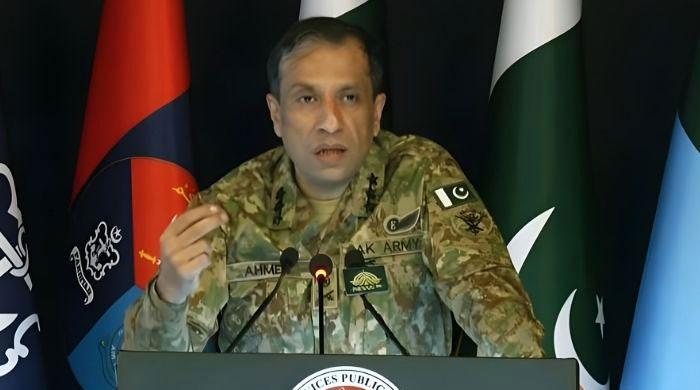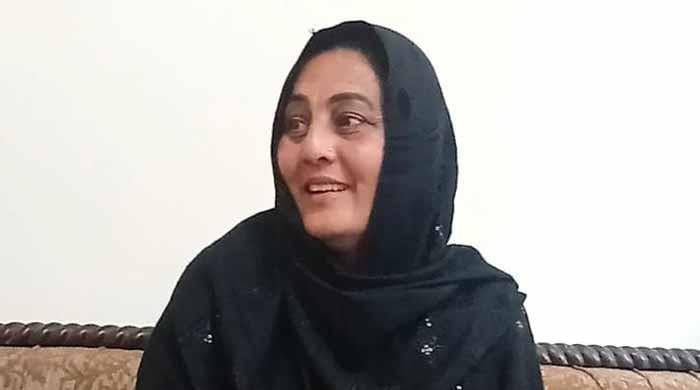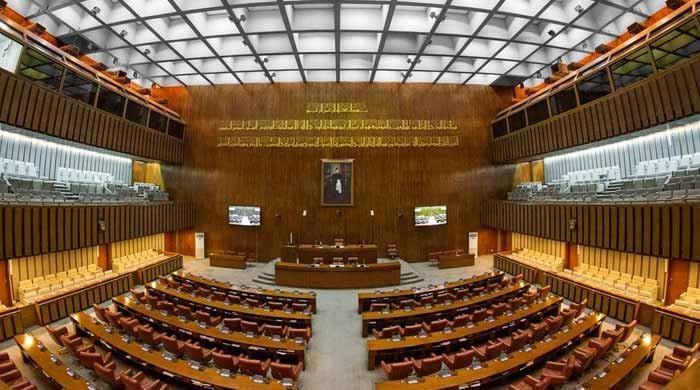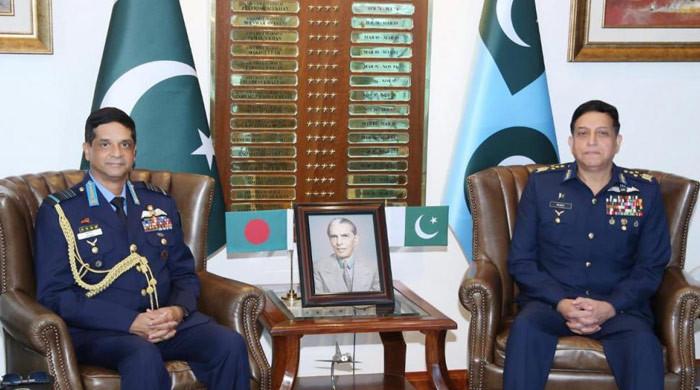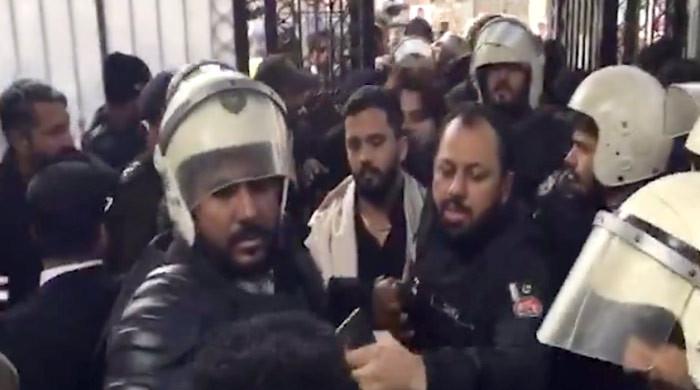No evidence supporting Imran Khan's claim of Russia offering cheap fuel products: petroleum division
No reference of Russian offer to provide LNG and gasoline at 30% discount to Pakistan included in meeting minutes
May 24, 2022
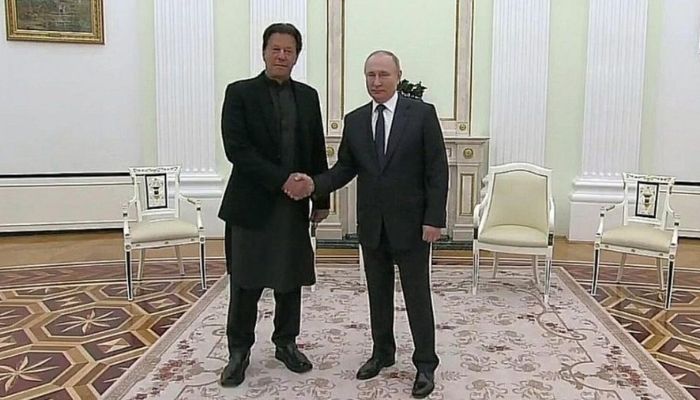
- Petroleum division debunks Imran Khan's claim that Russia offered POL products at subsidised rates.
- Says meeting minutes included no reference of Russian offer to provide LNG and gasoline at a 30% discount.
- Petroleum division had also written a letter to foreign affairs ministry asking if Russia had offered any discounted tariffs.
There is no official evidence in the petroleum division of former Prime Minister Imran Khan's claim that Russia offered cheap LNG, crude oil, and POL products, Syed Zakria Ali Shah, joint secretary for development and a spokesman for the petroleum division told The News.
Sources from the petroleum division claimed that trade of crude oil, POL products, and LNG was not even on the table during Imran Khan's discussion on the purchase of LNG, and the meeting minutes included no reference of a Russian offer to provide LNG and gasoline at a 30% discount.
The spokesman said the government had written letters to Russia on March 30 through the Ministry of Foreign Affairs with reference to the February 2022 visit of a Pakistan delegation, mentioning Pakistan’s keenness to enter into long-term agreements on the import of crude, POL products, and LNG at concessional rates.
The petroleum division had also written a letter to the foreign affairs ministry asking if Russia had offered any discounted tariffs on LNG and fuel products. To this effect, he said, it had also sent two reminders in the first week of April 2022, but the ministry said it didn’t receive any letter from Russia for dialogue in this regard.
Former energy minister Hammad Azhar had, through a letter dated March 30, 2022, drawn the attention of his Russian counterpart to an Inter-Governmental Agreement (IGA), which has been in force between the two friendly countries since 2017 on cooperation in the sphere of LNG. The Russian minister was informed that Pakistan was eager to enhance its relationship by fast-tracking the negotiations between the two nominated entities so that a long-term agreement for the supply of LNG on a G2G basis could be agreed at the earliest.
Then, the energy minister had proposed a supply of two to three Russian cargoes of LNG per month, each cargo containing 140,000 cubic metres of LNG.
In that letter, there was no mention of any offer by Russia except seeking dialogue on a long-term contract for the import of fuel and LNG at a concessional rate.
Officials at the energy ministry were also of the view that as far as the import of fuel by India was concerned, it had been importing crude oil from Russia for decades and continued to import it from Russia despite EU and US sanctions because of its war against Ukraine. They said India’s foreign policy was highly independent because of its strong economic muscle and its captivating market for big economies.
They also said that India had managed to get a special waiver from the US against its sanctions on Iran and had since long been importing crude oil and POL products from Iran despite US and UN sanctions. They said that India was a strategic partner of the US in the region against China.
"India always pitches its argument before the US, saying if it does not import fuel from Iran, its economy will be hurt and it will never be at par with China."
As far as Pakistan is concerned, it is not possible to import crude oil, POL products and LNG at a discounted rate even in the wake of EU and US sanctions on Russia, as the country's economic muscle is very weak and the country is always dependent on the IMF programme, they said.
The officials said that Pakistan had also failed to complete the IP gas line project because of US and UN sanctions on Iran.




